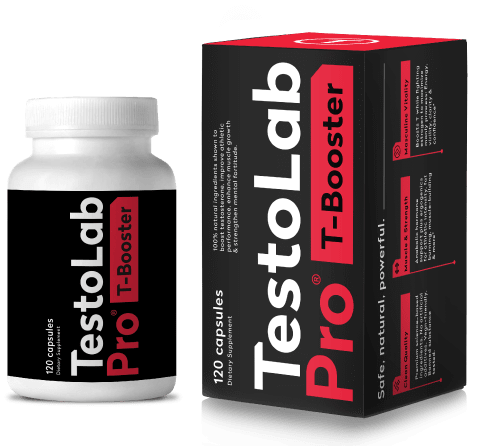Testosterone is the most commonly known male hormone (androgen) and is vital for men’s health.
Low testosterone levels can have many negative health impacts, so it’s important to look out for the signs and symptoms of low testosterone, and to adopt key nutritional and lifestyle principles which are essential for promoting optimal levels of testosterone.
This article discusses the potential causes of low testosterone levels, the signs to look out for, how to boost them naturally in order to maintain optimal health and performance!
Firstly, a brief overview of testosterone and its role in the male body.
What is Testosterone?
Testosterone is an androgen (male hormone) mainly involved in sexual development, muscle building, weight management, and hair loss.1
When looking at testosterone in the body, it is often divided into three categories:
- Tightly bound testosterone, which binds to sex hormone binding globulin (SHBG)
- Loosely bound testosterone, which binds to albumin and circulates around the body when broken
- Free testosterone, which is readily available testosterone floating around our body, often converted to dihydrotestosterone (DHT), which is a potent androgen.1
The loosely bound and free testosterone are what make up your bioavailable testosterone, which are the types that have the biggest impact on your health.
Maintaining healthy testosterone levels is crucial for overall health and wellbeing. Having abnormally low levels of testosterone can cause many issues in men.
Let’s look at some of the symptoms of low testosterone!
What are the Symptoms of Low Testosterone?
Low testosterone levels can have many health implications, though the symptoms vary from person to person, as it often depends on the cause and the health status of the person.1
Though, some of the most typical symptoms of low testosterone in men include:
- Hair loss
- Weight gain
- Low libido
- Depression
- Erectile dysfunction
- Loss of muscle mass
- Fertility issues
So, what actually causes low testosterone levels? Is there a way we can prevent this from happening? Let’s explore!
What are the Causes of Low Testosterone?
At times, low testosterone levels can be caused by medical issues, certain side effects of medication, and age. When this occurs, medical attention would be needed to address these causes.
However, low testosterone can also be caused by a number of nutritional and lifestyle factors:
Poor Diet
To maintain healthy testosterone levels, we need essential nutrients such as vitamin D, zinc, and magnesium.
Without a healthy, balanced diet, you may fail to achieve the recommended daily amount of these key nutrients.
An overall poor diet would be a notable cause of low testosterone, as this may further impact our weight.
Fat Gain
To further highlight the above point, fat gain has been shown to lead to decreased testosterone levels.1
Maintaining optimal body fat levels by having a varied, balanced diet and plenty of physical activity would help prevent unnecessary fat gain, which can lead to poor levels of testosterone.
Inadequate Sleep Quality
Much research has been done investigating the link between poor sleep and low testosterone levels.
It has been shown numerous times that poor quality sleep has a negative impact on testosterone production.
In addition to this, poor sleep is also linked with inadequate nutritional intake and potentially fat gain, which further emphasizes the necessity of getting at least 7-8 hours sleep per night.
Lack of Physical Activity
Living a very sedentary lifestyle has also been shown as a cause of low testosterone levels.
Though in fact, increasing your physical activity, particularly weight training, has been shown to actually boost your testosterone levels.1
Key Take Homes: How to Avoid Low Testosterone
The best way to avoid low testosterone levels is to adopt the following principles:
- Maintain a healthy, balanced diet that includes plenty of vitamin D, zinc, and magnesium
- Pay close attention to your sleep quality, ensuring you sleep at least 7-8 hours per night
- Ensure you manage your weight and avoid gaining unnecessary fat
- Boost your daily physical activity and consider a weight training program
- Consider a natural T booster, such as Testo Lab Pro
References
- Hull. M. Testosterone. Examine.com. 2020.

